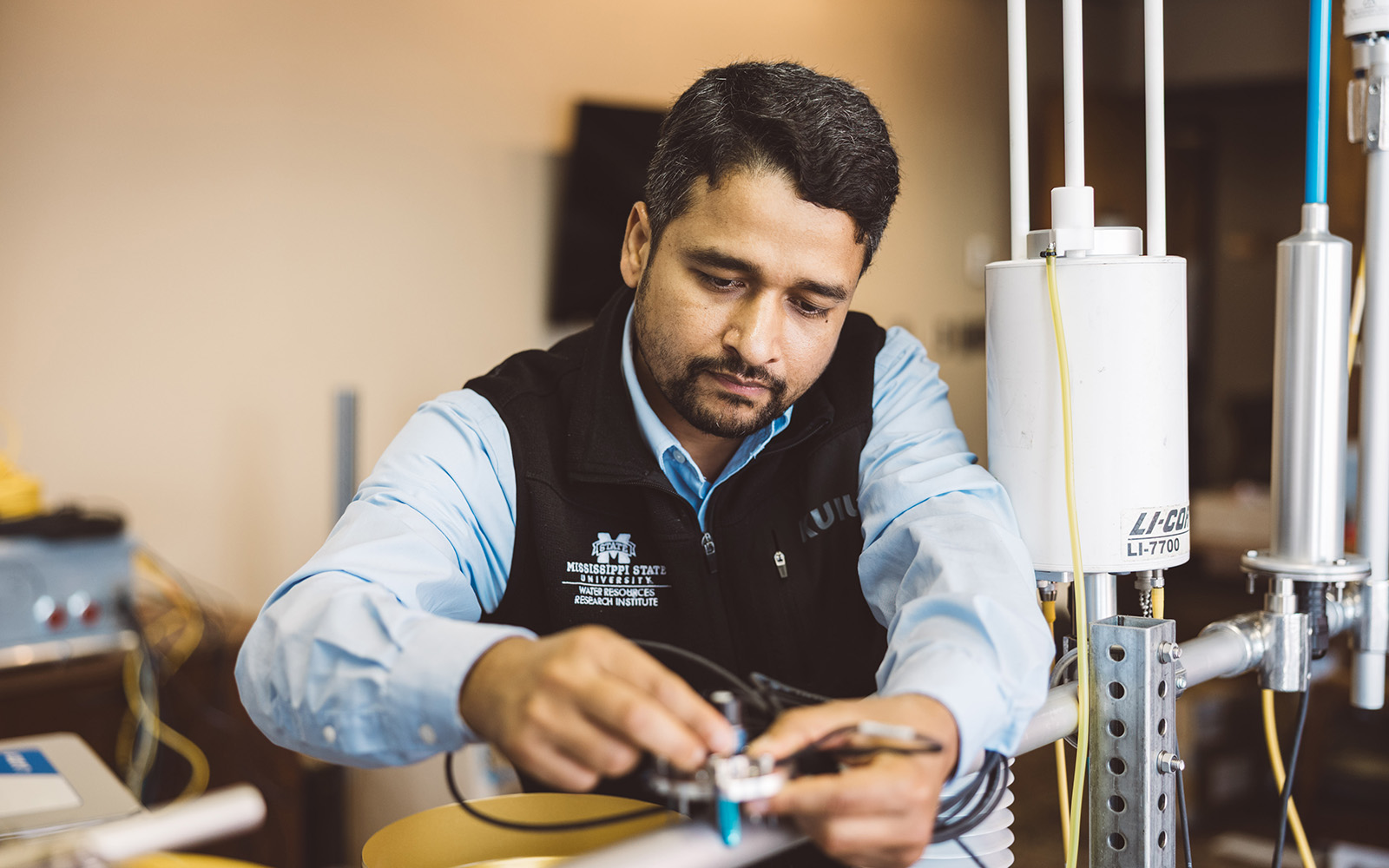News
Dhakal's Crop Research Supports a More Sustainable Future

From his crop studies in Nepal to west Texas to the Mississippi Delta, Dr. Madhav Dhakal brings a world of hands-on scientific experience to Mississippi State University's Water Resources Research Institute—experience that is positioning Mississippi growers for a more productive and environmentally sustainable future.
"Crop water use and greenhouse gas fluxes are the major focus in my research," Dhakal said. "We may not feel the impact right now, but data shows that the Mississippi River Valley alluvial aquifer is declining at a rapid rate. Water is the major driver of Mississippi's agricultural economy, and it is critical that we address this issue now so that growers will have access to a sustainable water supply in the future."
Dhakal studied agriculture at Tribhuvan University in Nepal, where he grew up on his family's farm and learned how to grow rice, corn and wheat. As a doctoral student at Texas Tech University, his focus on alfalfa and grass systems in west Texas deepened his knowledge about the water footprint of crop production.
Those experiences led him to post-doctoral research opportunities with the institute—first at the USDA Agricultural Research Service Station in Stoneville, where he gained diverse insights into growing systems for corn, soybeans, cotton, and sorghum; and in his current role as assistant research professor of agronomy in the Mississippi Agricultural and Forestry Experiment Station.
"Part of my long-term focus is on conservation practices that reduce or mitigate negative environmental impacts of intensive tillage," said Dhakal.
"We're studying how the use of cover crops and conservation tillage can reduce water demand and greenhouse gas emissions in the humid environment and provide a better alternative to tilling the soil, which intensifies water usage," he added. "We're also investigating how nutrient management impact greenhouse gas emissions in row crop systems."
Through his research on cover crops, Dhakal began working with drones and published a paper about his research findings using multi-spectral imagery, which allows scientists to analyze invisible light wavelengths to monitor crop health and other vital growing parameters.
His background also has been helpful in developing more environmentally sustainable irrigation techniques for rice, which not only is heavily dependent on water but produces large amounts of methane, a greenhouse gas.
View More News